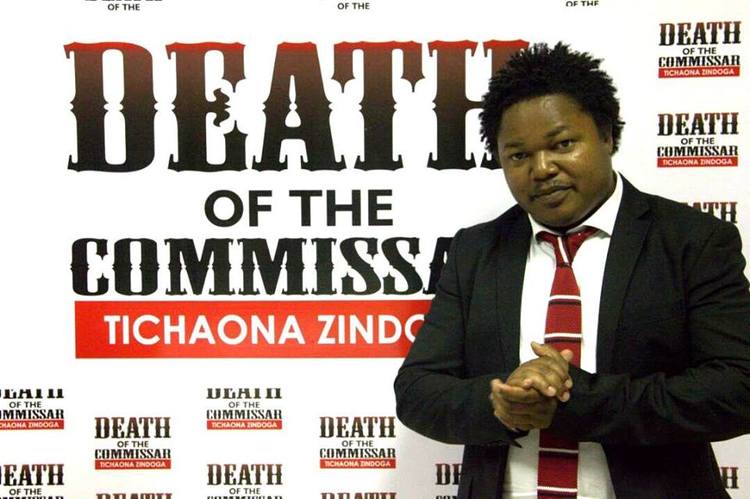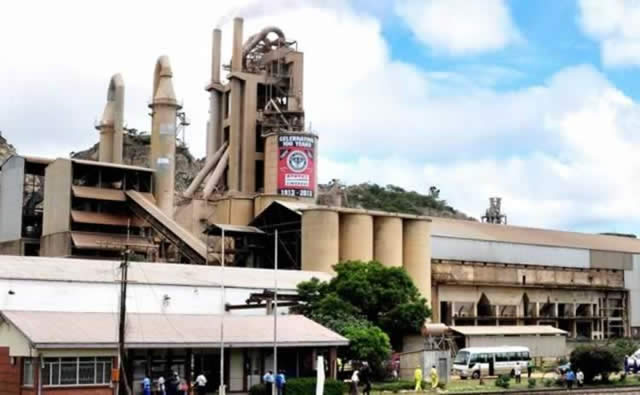A poet’s plea for a better world

Beaven Tapureta Bookshelf
Sometime ago much of what we knew about award-winning journalist Tichaona Zindoga did not include his poetry but regular political essays published in The Herald. We met him, and still meet him today, in his column “My Turn” — a young, objective political commentator. This year, the young man has landed in the poetical space wherein the essayist whose turn someone once rightly described as “hard-hitting” has metamorphosed into the wondering wanderer whose style of dance is original, soulful and gripping. His new anthology titled “Death of the Commissar” (2017, Underclass Books and Films) carries 68 poems.
Yes, Zindoga’s poetry, one way or the other, reflects behind it voices of ‘travellers’ who are observant, deeply inquisitive, yet pleading for some serenity in a mad world once peaceful and habitable.
In this 21st century, human beings are losing direction by challenging the authority of God. In poems such as “The Sun” the poet captures the power of God as expressed through nature yet human beings, “in the name of freedom”, have chosen “to defy God/ impugn his Holy name/ and bring his laws to shame”.
In fact, in the poem “In the Name of Freedom”, one of the shameful paths the human race has taken in disobedience to God is choosing “to worship idols and other gods/Do the very things that He forbids/ Man marrying man/Woman marrying woman.”
The history of Africa cannot be told without bringing up the story of slavery and colonization. Zindoga’s passion for Africa manifests in some of his poems about war/violence and peace, betrayal and patriotism or heroism. “Big Shoes”, for instance, is a metaphoric poem that shows a life well-lived, an inexhaustible legacy left by a selfless leader. In poems such as “The Giant”, “The Prophetess”, “Native Genius”, and others, Zindoga builds in the mind images of inspiring leaders or realities ever to exist or happen in the history of Zimbabwe or Africa.
The title poem “Death of the Commissar” is indeed a touching masterpiece in which you actually hear the memory of a mother eulogizing her son, now dead like his father. They are now, father and son, lost
“In these games of men
Where brawn and brain are deployed
To destroy and rule . . . ”
While the poet does at different levels celebrate his people’s own history, own identity or independence, or heroism, he pleads with humanity to stop the war, diseases, and other evils it has promoted especially in this 21st century. The world, as the poet views it, is becoming more and more evil because there are some people who think of others as “lesser people” or “un-humans” and to get rid of these unwanted creatures, they “invent disease and plague” in modern laboratories. A spirit of senselessness now seems to run through our once habitable globe. We engage in bloody conflicts (tribe against tribe, brother against brother) simply because of difference of opinion, or because we have allowed ourselves to be used by “authors of poverty” who
“Made you hate yourselves
See enemy in anyone else
Hate your brother and neighbour
Forget about the real enemy and robber.” (What Bravery?)
There is psychological, spiritual, political and economic chaos in today’s world that each one of us keeps asking for the meaning of life, like the persona in the poem “Penitence”: Explain to me, this sweat, blood and grime/ if not to atone for some unknown crime? /… of which nobody else will ever hear.”
In the last part of this poetry collection the reader is captivated by some poems bent on social issues like love and lust, friendship and infidelity, and other elements found in the home or personal relationships. It is the poet’s gift of juggling words, issues, emotions, “philosophies” and contexts, that will interests the lovers of poetry. The word “juggle” itself means “throw, catch, and keep in the air several things simultaneously” and this is exactly what Zindoga does with his English poetry collection.
Born in 1985 in Goromonzi, Zindoga received his journalism training at Christian College of Southern Africa (CCOSA) in Harare. He is currently studying for a BA Honours in Journalism and Media Studies at the University of Witwatersrand in South Africa and pursuing part-time study in Political Science at the University of Zimbabwe. He is the political editor of this Zimbabwe’s largest newspaper The Herald. “Death of the Commissar” is Zindoga’s first poetry anthology.









Comments